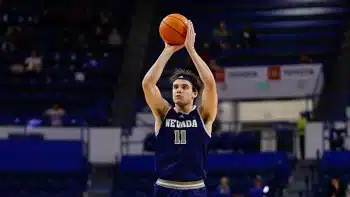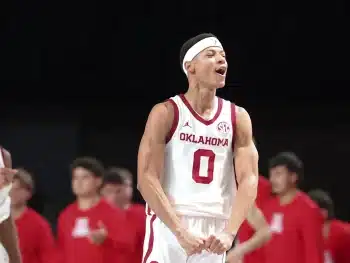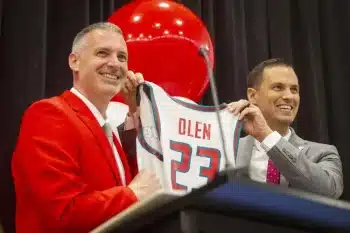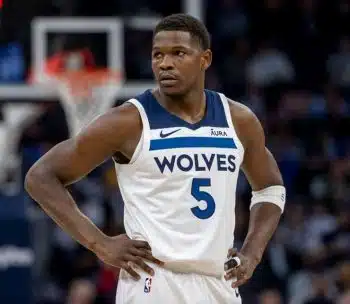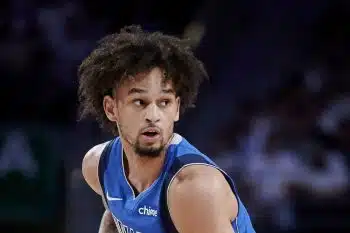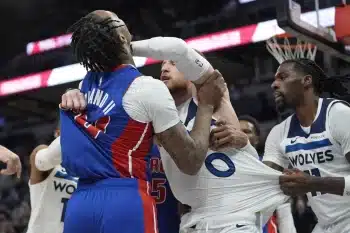NBA
Unintended Consequences of Malone Firing Could Help Kings
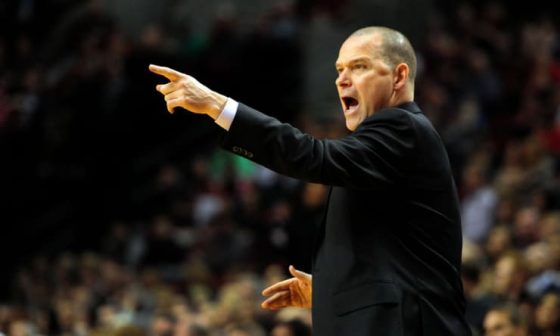
Under the stewardship of owner Vivek Ranadive, the Sacramento Kings have quickly established a reputation as perhaps the NBA’s most unconventional franchise. Since he took control in May 2013, Ranadive hired his coach before his general manager, signed Carl Landry to a four-year deal for the full mid-level exception, gave DeMarcus Cousins a max extension, traded for analytics pariah Rudy Gay and let Isaiah Thomas walk for the reputedly inferior Darren Collison. All of these moves drew varying degrees of criticism, although many (particularly Cousins, Gay and Collison) have achieved better results than many commentators anticipated.
Even those unconventional moves did not augur the latest head-scratcher, the firing of coach Michael Malone after only a season and a quarter. The consensus is that Malone did not deserve to be axed—he had the Kings playing .600 ball before Cousins missed the last nine games with viral meningitis. The doormat Kings had improved defensively on an individual and team level, especially with Cousins in the game. And Cousins, Gay, Collison and Ben McLemore had all shown significant improvement, on track for the best seasons of their careers so far.
But as has so often been the case in NBA coach firings of late, “deserve got nothing to do with it.”* The Kings largely attributed the Malone firing to stylistic differences, with ownership and management preferring a more up-tempo style. With a dominant low-post center, a shooting guard who struggles to handle the ball and a dearth of quality wings beyond Gay, that style probably does not fit the personnel. Many have predicted a major regression under Tyrone Corbin, who it appears will spend the rest of the season at the helm.
Fortunately for Sacramento fans, Malone’s firing could prove an unexpected (and very likely unintended) boon. The Kings have little hope of making the playoffs after sliding to 11-13 with Cousins out and Oklahoma City ramping back up to juggernaut status. Sacramento owes its 2015 first-rounder to the Bulls as part of an ill-fated trade with Cleveland,* but it is top-10 protected. A regression under Corbin could result in keeping the pick.
The Kings are now tied for the 13th-worst record in the league. However, only seven East teams will miss the playoffs (and thus could possibly pick below the Kings), regardless of their record. With the Thunder back on track, the Kings would be “competing” in the West with 10-14 Denver, 12-14 Phoenix and 11-12 New Orleans to retain the pick. ESPN’s Hollinger Playoff Odds predict Sacramento to finish 38-44, five games behind New Orleans, tied with Denver and two games ahead of Phoenix. If the Kings finish behind those three teams, they need only finish behind one East lottery team to secure a top-10 worst record and achieve overwhelming odds of keeping their pick.
What are the chances of that? The Hollinger odds project the ninth through 11th East teams (Miami*, Indiana and Brooklyn) to finish with 34-35 wins, so a regression by the Kings could put them right in line to finish behind at least one of those squads.
Those odds are based on how the team has played so far, and they do not know that Cousins has missed the last nine games. However, they also do not know that Malone was fired, or that Sacramento will have an overpowering incentive to lose late in the year. Sometimes it is overt (2012 Warriors and late 2000s Timberwolves) and sometimes not (2014 Pistons), but teams owing a protected pick often seem to end up with a record that puts them barely in position to retain it.*
While it does not seem the Kings’ style under Ranadive to tank for their pick, history has shown that the lure of retaining a protected pick is powerful indeed. And Sacramento will not lack for potential reductions in performance. For example, Gay has struggled with Achilles tendon soreness of late, and he could certainly be shut down once the Kings are clearly out of the playoff race. The Kings will want to protect their investment after awarding Gay a three-year extension past this season. Without him, Sacramento will struggle even more to create offense and could really crater, especially if Nik Stauskas and his incendiary defense get his minutes.
Cousins also has missed significant time and will likely have his minutes and potentially effectiveness limited as he returns. And Corbin has never shown the ability to coach defense at Malone’s level in his previous gig in Utah. The chances of keeping the pick are far greater than it would have appeared a few weeks ago.
Of course, the fact that I just devoted a thousand words to this subject illustrates the problem with protected picks in general. While media carping about tanking is quite overblown and many of the proposed fixes go too far, the very specific reward of tanking to keep a protected pick within the lottery is quite insidious. The Kings bear watching as the latest example.
